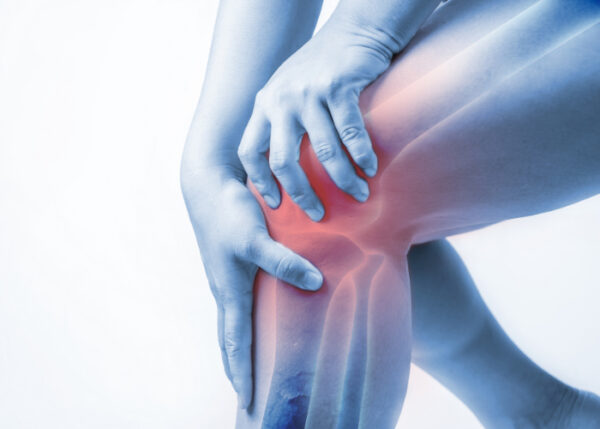Meniscus Tear Specialist

Are you experiencing pain and stiffness in your knee? If so, you may have torn your meniscus. A meniscus tear is among the most common knee injuries. A torn meniscus can occur in several different ways. Meniscus tear specialist, Dr. Matthew Provencher provides diagnosis and both surgical and nonsurgical treatment options for patients in Vail who have torn their meniscus. Contact Dr. Provencher’s team today!
What is a Meniscus Tear?
The menisci are critical to the structure of the knee joint, acting like cartilage and “shock absorbers” for the joint when it is in motion and put under stress. The small “c” shaped structures are located within the knee between the tibia (shinbone) and femur (thighbone). Each knee has two menisci, the medial meniscus and the lateral meniscus, both of which can experience a meniscus tear from a sports injury, a severe fall, repeated squatting or a sudden twist of the knee joint. Orthopedic knee specialist, Dr. Matthew Provencher specializes in the diagnosis and treatment of a knee cartilage injury to return patients in the Vail, Aspen, Colorado Springs and Denver, Colorado area to an active, healthy lifestyle.
The primary functions of the menisci are to distribute forces and prevent knee arthritis, as well as aiding the knee ligaments in providing joint stability. The medial meniscus bears up to 50% of the load applied to the inside of the knee. The lateral meniscus absorbs up to 80% of the load applied to the outside of the knee.
A meniscus tear can vary in size, location and severity from patient to patient. A medial meniscus tear is a knee cartilage injury to the meniscus located on the inside of the knee. These tears often occur in combination with other knee injuries, such as an ACL or MCL injury. Medial meniscus tears typically occur due to excessive twisting and weight bearing pressure, commonly in sports activities. A lateral meniscus tear is a knee cartilage injury to the meniscus located on the outside of the knee. These tears are less common than a medial tear, but can also occur in combination of other knee injuries.
What are Meniscus Tear Symptoms?
Depending on severity of the knee cartilage injury, pain will range from mild to severe in both medial and lateral cases of a meniscus tear. Patients also experience stiffness and swelling in many cases, as well as a sensation that the knee is going to lock up, give away or get stuck in a certain position.
How to Know if you Have a Meniscus Tear
In order to diagnose a meniscus tear, Dr. Provencher will perform a complete medical review and physical examination of the injured knee. During the examination, he will look for any changes in knee appearance or any deformities. He will also perform a variety of tests, including bending the patient’s knee and rotating the leg inward to assess the pain or clicking as the leg is straightened. This is referred to as the McMurray test. X-rays and an MRI scan are also commonly performed to look for additional joint damage and to confirm the knee cartilage injury.

What are Treatment Options for a Meniscus Tear?
The treatment for a meniscus tear, either medial or lateral, depends on the size and location of the tear. The lateral (outside) portion has a rich blood supply and a tear is more likely to heal on its own. The medial (inside) portion lacks a good blood supply and cannot typically heal without a surgical procedure performed by Dr. Provencher.
Does a Meniscus Tear Require Surgery?
For acute tears of the menisci, Dr. Provencher commonly prescribes a combination of rest, ice, anti-inflammatory medications and a detailed physical therapy program. It is strongly suggested that patients work with the in-house physical therapists at Howard Head Sports Medicine to optimize their rehabilitation. Patients are also encouraged to modify activities since diminished use of the knee helps aid in the healing process.
What is Meniscus Surgery?
In cases of a severe meniscus tear, arthroscopic knee surgery may be recommended by Dr. Provencher. During the repair, two tiny incisions are made in the injured area and an arthroscope is inserted so Dr. Provencher can examine the injured area in great detail. After viewing the damaged area, torn pieces of the meniscus are repaired and/or removed.
If a larger tear is present in the outer two thirds of the meniscus, an attempt is made to repair the meniscus and preserve as much of the original cartilage as possible. This is performed by Dr. Provencher with an arthroscopic and open procedure, utilizing an arthroscope and small surgical instruments in the knee, while making an open incision on either the inside or outside of the knee joint to complete the repair. Strong stitches are placed through the tear to bring the tissue back together and to allow for proper healing.
For additional resources on a meniscus tear, or to learn more about another knee cartilage injury, please contact the orthopedic practice of knee specialist Dr. Matthew Provencher, serving patients in Vail, Aspen, Colorado Springs and Denver, Colorado.